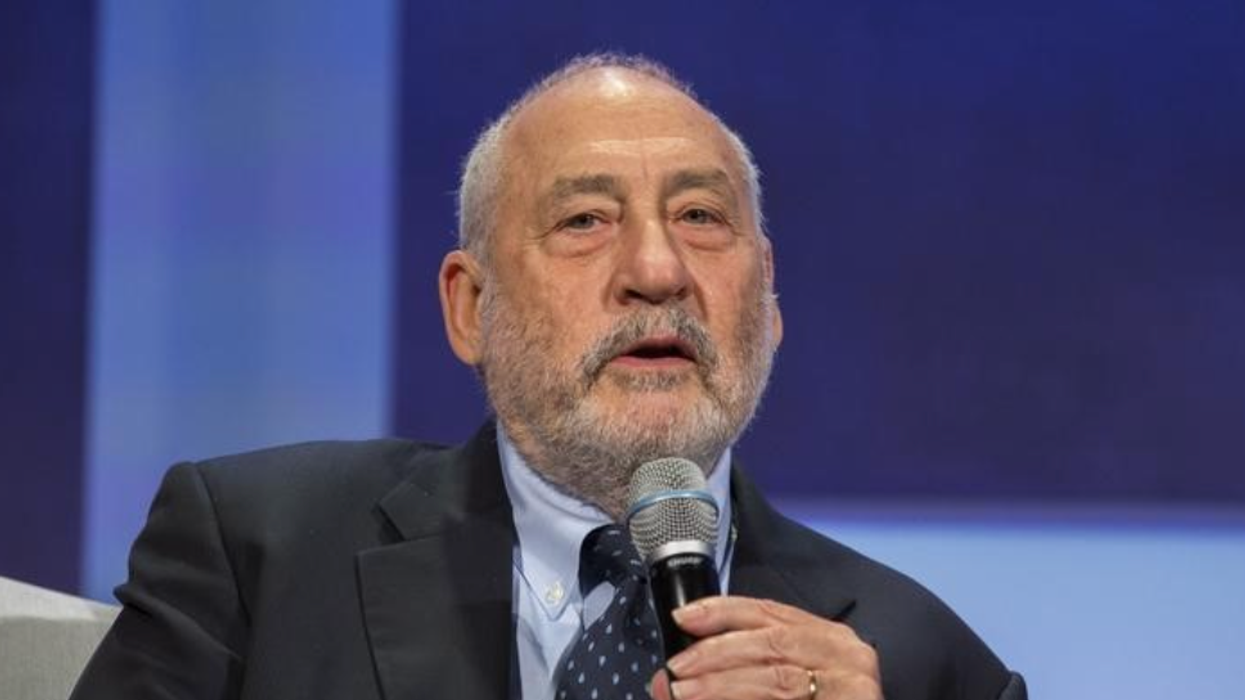Nobel Economists Warn Foolish Trump Schemes Would 'Reignite Inflation'
A coalition of the world's top economists are sounding the alarm over a potential second wave of massive inflation if former President Donald Trump is elected to a second term in the White House.
In a recent open letter, chiefly authored by economist Joseph Stiglitz, 16 Nobel Prize-winning economists warned that the ex-president's economic policies would have a disastrous impact on the global economy. Newsweek reported the economists wrote that even though "each of us has different views on the particulars of various economic policies," they still believe President Joe Biden's economic agenda is "vastly superior to Donald Trump."
"Many Americans are concerned about inflation, which has come down remarkably fast," the letter read. "There is rightly a worry that Donald Trump will reignite this inflation, with his fiscally irresponsible budgets."
Under the Biden administration, inflation hit a peak of 9.1 percent in June of 2022, largely as a result of the economic fallout from the Covid-19 pandemic and actions the Federal Reserve took to stabilize the economy. The Fed responded to inflation by increasing interest rates, which, while alleviating inflation, have made it harder for Americans to finance major purchases like homes and vehicles. The Fed hasn't yet reduced interest rates, though Newsweek reported that inflation is back down to 3.3 percent as of May 2024.
Despite that initial inflation spike, the economy has performed well under Biden's watch under all traditional metrics, like unemployment rates, GDP growth and consumer confidence. Real wages (adjusted for inflation) are up, meaning that more Americans have more money in their pockets. Gains by lower-income Americans have been the most significant in recent years: According to data from the St. Louis Fed, the net worth of the bottom 50% has increased by roughly two-thirds since 2019.
Trump has attempted to cast himself as the better president on economic issues, though his proposed policies have raised red flags from economic experts warning that the American working class would suffer significantly. The former president has proposed a universal 10 percent tariff on imported goods and tariffs as high as 60 percent on Chinese goods — the cost of which economists say would simply be passed down to consumers in the form of higher prices. Michael Strain, who is the director of economic policy studies at the conservative American Enterprise Institute, said that Trump's policies "would result in price spikes" for most Americans.
In the letter, which Axios first obtained, Stiglitz and his colleagues maintained that Trump's policies "would have a negative impact on the U.S.'s economic standing in the world, and a destabilizing effect on the U.S.'s domestic economy."
Trump's plans to round up, detain and deport millions of immigrants would also be harmful to the economy, given the dependence multiple sectors of the economy have on immigrant labor. Strain wrote that the former president's hardline immigration agenda would "cause a severe supply shock to the labor market." And in analyzing his mass deportation policy, New York Times reporters Maggie Haberman, Charlie Savage and Jonathan Swan wrote earlier this month that production decreasing and labor becoming more scarce would naturally result in higher prices.
"For example, if farmers could not find enough workers to pick all their crops, there would be a smaller supply of produce and it would get more expensive," they wrote. "And businesses would be forced to offer higher wages to attract or retain workers — passing on some of their higher costs to consumers."
Stiglitz was joined in his letter by Nobel Prize winners George A. Akerlof (2001), Sir Angus Deaton (2015), Claudia Goldin (2023), Sir Oliver Hart (2016), Eric S. Maskin (2007), Daniel L. McFadden (2000), Paul R. Milgrom (2020), Roger B. Myerson (2007), Edmund S. Phelps (2006), Paul M. Romer (2018), Alvin E. Roth (2012), William F. Sharpe (1990), Robert J. Shiller (2013), Christopher A. Sims (2011) and Robert B. Wilson (2020).
Reprinted with permission from Alternet.












